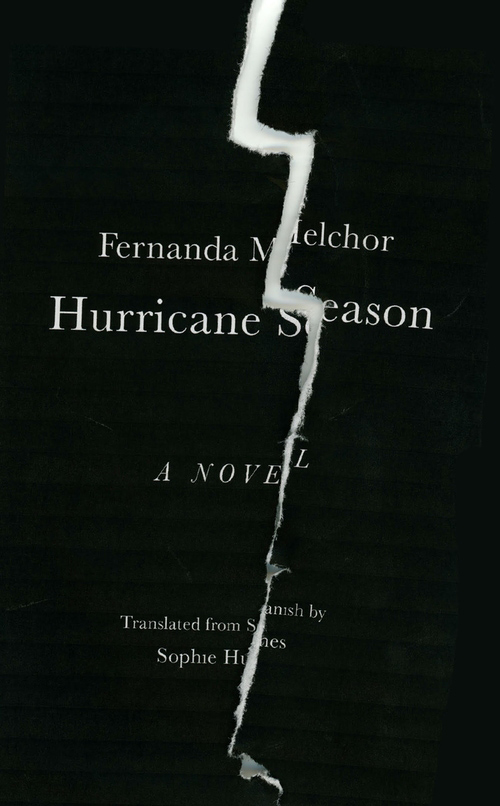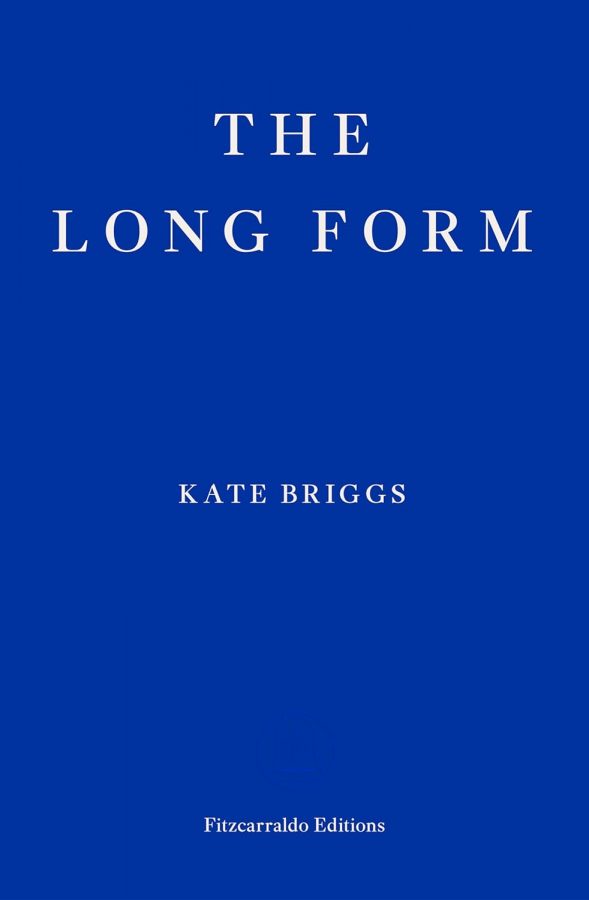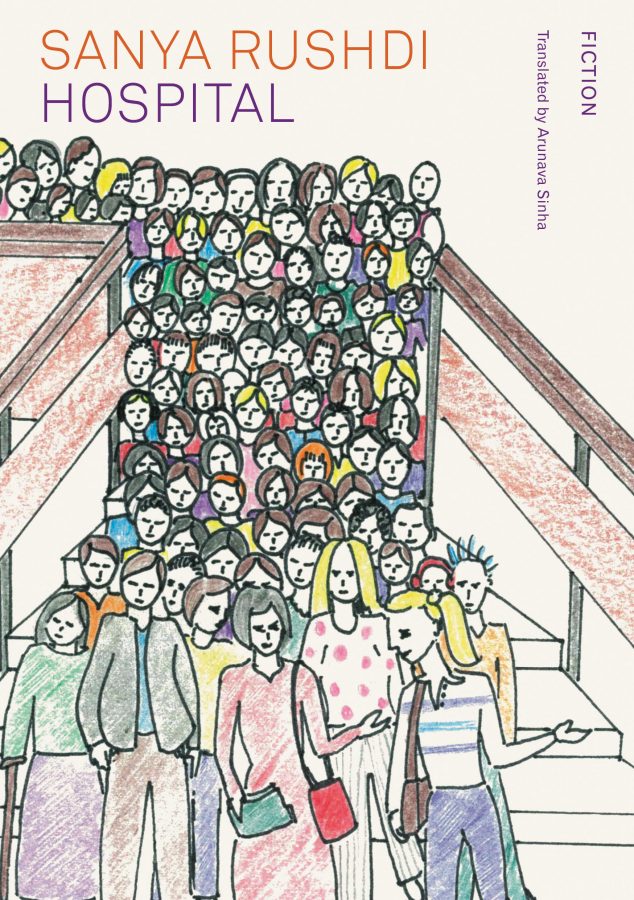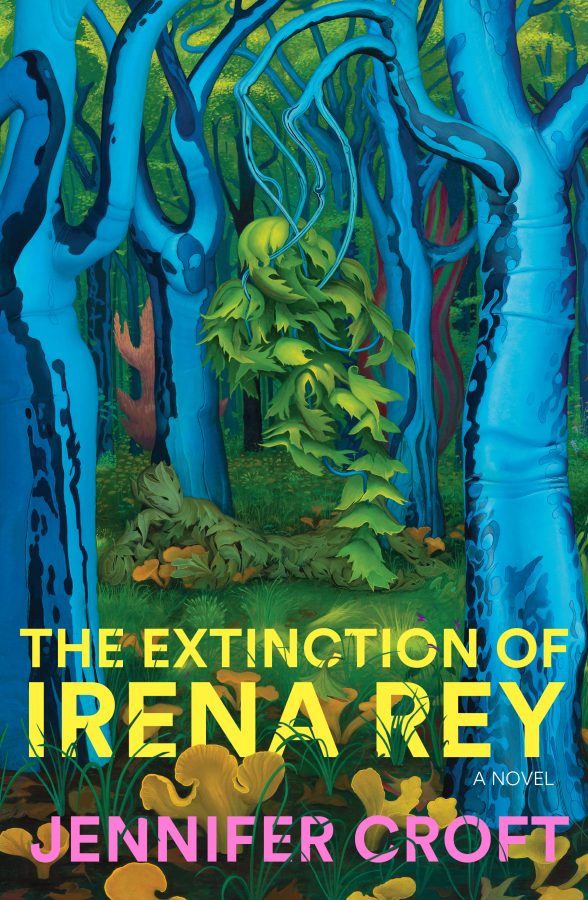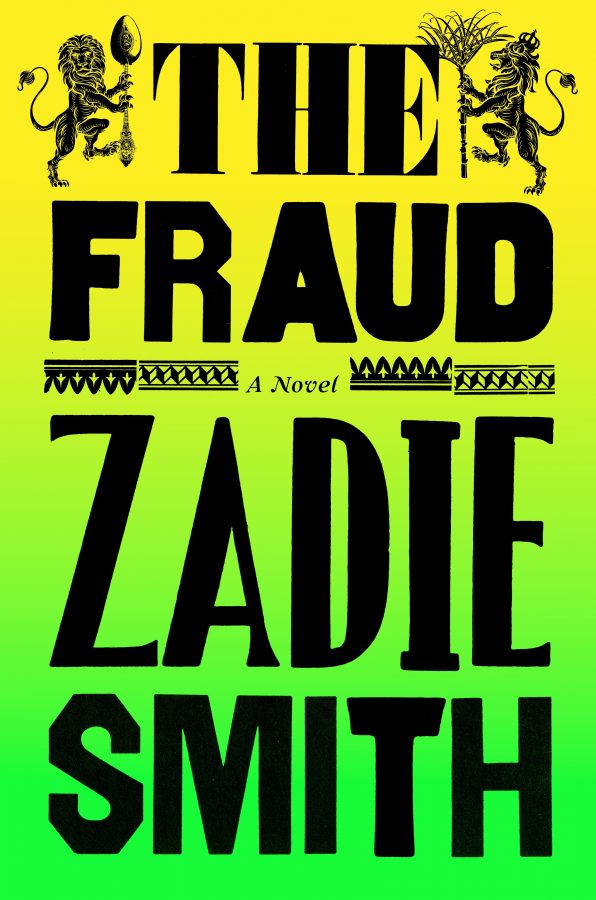Fernanda Melchor’s Hurricane Season, which was a sensation in Mexico on its 2017 publication, arrives in English during a season of stormy weather for anglophone fiction about the US’s southern neighbor. Critical debate about these books has been conducted at a notably high decibel level. But it’s striking that the most reviled and celebrated recent novels about Mexico to appear in the anglosphere have been united by a fantasy of readerly empathy – an assumption that the most interesting thing about Mexican suffering is the attitude US readers might take to it. It’s a fantasy that Melchor’s Hurricane Season, a brutal and relentless novel evidently not written with an American audience in mind, declines to indulge.
As for the reviled: when Jeanine Cummins’s novel American Dirt was published early this year, it was sharply rebuked on social media (and in some high-profile reviews) for the exaggerated nature of its drug war saga.1 In an author’s note at the end of the book, Cummins said she wanted to write about Mexican refugees as ‘regular people like me,’ and reported that the book took shape when she asked herself the following question: ‘If my children were in danger, how far would I go to save them?’
That question becomes the germ of her plot, in which a Mexican heroine designed for middlebrow relatability – bookish, attractive, middle class: in short, someone ‘like us’ – improbably becomes one of the refugees she has previously only read about. American Dirt’s critics pointed out that the novel – with its massive marketing budget and early celebrity endorsements – threatened to divert attention from new books about Mexico by writers better equipped to capture the country’s social and political realities.
One commonly recommended antidote was Valeria Luiselli’s Lost Children Archive, published in 2019 and written in English (Luiselli, a Mexican citizen, lives and works in New York).2 Luiselli’s widely celebrated book bears impressive liberal imprimaturs, including thoughtful reviews in the New Yorker and the New York Times and a spot on Barack Obama’s ‘Favorite Books of 2019’ list.3 Her novel is vastly more complex than Cummins’s. But it is animated by a strikingly congruent fantasy of heroic empathy.
Luiselli’s novel relates the story of a Mexican woman living in New York who drives with her husband and two children to the Arizona border to complete an ill-defined sound-art project and to gather information about the fate of two unaccompanied immigrant girls. The girls are never located, but the journey affords Luiselli’s narrator ample time to reflect on her relation to the suffering of others: ‘I look back at our own children, asleep in the backseat. … I wonder if they would survive in the hands of coyotes, and what would happen to them if they had to cross the desert on their own.’
The thought experiment is virtually identical to Cummins’s – and, as in American Dirt, Luiselli’s plot materializes the daydream, as the narrator’s children bizarrely run into the desert to become voluntary refugees. The metafictional trappings of Luiselli’s book can’t obscure its plot’s structural resemblance to Cummins’s: here, too, middle-class characters inhabit a geopolitical crisis as a kind of ethical thrill ride.
Hurricane Season is not participating in these liberal moral gymnastics. Unlike Cummins and Luiselli, Melchor refuses to invite comfortable readers to imagine themselves in the situation of her intensely vulnerable characters. Hurricane Season begins in a macabre mode that, with a few exceptions, never lets up. The novel opens when five boys playing along a rural canal follow a rancid smell to discover ‘the rotten face of a corpse floating among the rushes and the plastic bags … the dark mask seething under a myriad of black snakes, smiling.’
As the plot unfolds, the novel hits a checklist of social ills – misogyny, transphobia, homophobia, racism, neoliberal rapacity – and hits them so hard that the results at times approach the unreadable. And yet, the book has a ferocious rhetorical and narrative power, a profane colloquial energy that almost serves as a protest against the cruelty it recounts. At times the novel’s style feels close to outpacing the nightmarish world it narrates.
That it never does is Melchor’s greatest challenge to the protocols of ‘literary fiction,’ which tends to recast even the grimmest material as intellectually or morally fortifying. But you’re not going to feel better, or better about yourself, for having read Hurricane Season.
Notwithstanding the corpse that the boys find in the opening pages of the novel, the police procedural opening is a feint, both because the killer is revealed early on and because there is no investigation to speak of. Instead, the narrative winds back in time to relay the victim’s backstory in a choral third person that mimics the prurience of gossip. (She ‘couldn’t have been older than forty, but could have easily passed for sixty, with all those wrinkles, gray hairs and saggy skin.’)
An outcast known to the town (and the novel) only as ‘the Witch,’ the victim performed abortions for local women and occupied a filth-infested house in which she was rumored to have stashed a fortune, and where she presided over raucous parties that included Luismi, the drug-addled young man we learn was her lover and murderer.
That’s not really a spoiler: Hurricane Season’s surprises are less revelations of action than of motive. The narrative structure is a marvel of engineering: each of Melchor’s five central chapters is comprised of a long paragraph whose cascading sentences follow a single character in a claustrophobically close third person. The chapters circle around the novel’s central crime, but what they each relay is no less bleak.
We encounter Luismi’s suspicious, resentful cousin Yesenia, who informs on him less out of moral duty than out of disgust at what she considers his sexual depravity; his put-upon stepfather, Munra, who frets jealously while his wife, Chabela, turns tricks with the local narcos; Norma, the 13-year-old girl – pregnant and on the run after being sexually abused by her stepfather – for whom Luismi professes and performs a tender, possessive love; and Brando, a boy who runs with Luismi’s gang and whose sexual interest is sparked primarily by bestiality porn and Luismi himself – whom Brando both longs for and longs to kill, with equal intensity.
In summary, and certainly in the reading experience, the events are so lurid as to verge on the pornographic. The specter of authorial exploitation haunts these pages, especially when we learn offhandedly that the Witch was born a boy. Melchor conveys the information matter-of-factly, with a merciful lack of Crying Game–style fanfare. But she also maintains an implacable distance from the Witch’s experience: the central character remains a cipher.
For some readers, this refusal to draw close to the Witch will feel like a doubling of the violence unleashed against her in the story. When the narrator relays the other characters’ fear of a woman they refer to as ‘the faggot,’ ‘that freak,’ or ‘the bitch,’ or listens in on Brando’s revulsion at ‘that creepy, rigid way she had of moving her gangly limbs, like a wind-up toy that just had life breathed into it,’ readers who want to attain a vivid sense of the Witch’s humanity are forced to interpret these expressions of hatred as the author’s analysis of that intolerance. But Melchor’s narrator is brutally scrupulous in leaving that task to us.
Hurricane Season is equally terse about the context for its action; Melchor’s sparse details point us to the ravages of global capital without underlining them. We are somewhere resembling Veracruz, Melchor’s native state and the place where she studied journalism and set her first two books. There are glancing references to a hurricane and landslide that devastated the area in the 1970s, and we learn that the recent discovery of oil in a nearby municipality has violently transformed the local economy: highways have been cut through towns, the towns themselves ‘repopulated by outsiders’ in search of work. Strip clubs and cantinas line the roads.
A sense of entrapment is viscerally relayed by the very look of the page, those seamless paragraph-walls enclosing the events in a typographic prison. In this airless world, the most fleeting moments of gentleness or concern – Yesenia stroking her grandmother’s hair, Chabela’s perception of Norma’s pregnancy – glow with outsize significance. Even spots of narrative blankness function as reprieves: when Brando steps behind the Witch’s house to smoke a cigarette and simply look at the fields and sky, there’s a momentary intimation of some other narrative possibility arcing away from this one (of course, he then steps back into the house and the narrative maelstrom).
In the most startling of such moments, aesthetic pleasure and sexual desire combine to offer a fleeting possibility of escape from the story’s unrelieved moral ugliness. Late in the novel, Melchor reveals that ‘Luismi’ is not the murderer’s given name but a nickname he’s earned because his ‘crystalline’ singing voice resembles that of the heartthrob popstar Luis Miguel.4 The information comes via Brando, who feels himself ‘choke with emotion’ every time his friend sings – before he immediately converts the feeling into ‘an almost cramp-like sensation in his gut.’
This is the closest the novel comes to a liberating vision of erotic connection. Not very close, in other words: the rule according to which a flash of emotion is only perceptible via the humiliation it provokes is pitilessly enforced in Hurricane Season. Our culture has produced a lot of language lately about toxic masculinity, but rarely have the hydraulics of that phenomenon been so precisely analyzed. If you take these men’s violence as the indicator – the sole indicator – of a tenderness they experience only as furious shame, the sadness of the novel is almost unbearable.
Perhaps what most sets Hurricane Season apart from other contemporary fictions of abandonment is its refusal to sentimentalize the work that literature does. In both Cummins’s and Luiselli’s novels, books become an emblem of the vertiginous distance separating the cruelty of the narrated events from the protagonist’s perspective – and emblems of the dream that the distance might be traversed. Cummins makes her heroine the proprietor of an independent bookstore in Acapulco, in which capacity she befriends the cultured cartel boss who will order the execution of her family. That the murderous narco enjoys contemporary (anglophone) fiction is meant to be taken as a deep irony.
In Luiselli’s novel, too, books are piled high, as in an academic’s apartment: the narrator prepares for her road trip by loading her trunk with Sontag, Benjamin, and Gide, essays by Rosalind Krauss and Rebecca Solnit, audiobooks of novels by Cormac McCarthy, Ralph Ellison, and Carson McCullers. In both novels, the effect of ethical handwringing, and of unintentional self-satire, is conspicuous, as readers are asked to contemplate – as if it were news – the fact that literature has at best a tangential effect on real-life suffering.
Melchor, by stark contrast, refuses to let her novel’s obvious literariness take shape among characters inside the story world. Hurricane Season’s aesthetic ambition is, to be sure, unmistakable: the book bears epigraphs by Yeats and the Mexican novelist Jorge Ibargüengoitia; in an acknowledgments page (oddly omitted in the New Directions translation), Melchor points readers to Gabriel García Márquez’s 1975 The Autumn of the Patriarch, a clear influence on Hurricane Season’s torrential form. Other canonical echoes are equally palpable: of Juan Rulfo, Faulkner, and (most strikingly) José Donoso’s classic Latin American Boom novel Hell Has No Limits (1966), also centered on the small-town murder of a desired and feared trans woman.
But all of this is kept firmly outside of the fiction; unlike in American Dirt and Lost Children Archive, Hurricane Season’s characters don’t name-check well-known titles or make explicit literary allusions. Aside from Luismi’s singing, the only glimpse of aesthetic pleasure we see in the novel is Norma’s feverish reading of a ‘little paperback book with a ripped cover and Fairy Tales for Children of All Ages written across it.’
The story she finds there – about dancing witches, a chanted riddle, violent and arbitrary punishment – is a dark mirror of Hurricane Season itself. Melchor’s acknowledgements tell us the story is a folk tale adapted by the early 20th-century Costa Rican educator and activist Carmen Lyra. But no one in Hurricane Season, Norma least of all, is aware of this. The novel’s world is recognizably shaped by the same global economic forces that govern the one inhabited by readers of forbiddingly dense fiction like Hurricane Season. But our being readers, Melchor insists, doesn’t build a bridge to this abandoned social landscape.
The enclosure of the novel’s world puts enormous pressure on Melchor’s language: the book’s propulsive style, replete with profanity and Veracruzan slang, is charged with making the novel’s cruelty endurable. In this, Melchor succeeds stunningly: the book is at once repellent and transfixing. Sophie Hughes’s impressive translation meets a daunting challenge with energy and inventiveness; the rhythm of her prose matches the fervor of Melchor’s original.
In places, though, Hughes’s choices inflect the novel’s tone in odd ways. This is especially visible in her tendency to put a showy topspin on moments where Melchor’s original opts for neutrality: a large rambling house (un caserón) in the Spanish text is here a ‘shitty dump of a house’; a group of drunk men (borrachos) are now ‘pissheads’; and when an older man calls a serving girl mija – an utterly common colloquialism whose closest English equivalents are ‘honey’ or ‘sweetie’ – Hughes reaches for ‘sugartits,’ thereby turning a potentially condescending familiarity into something definitively creepy. In the unforgiving environment of Hurricane Season, where viciously contemptuous language renders an unthinkably brutal story, Melchor’s moments of stylistic neutrality provide a kind of baseline of solemnity, even of dignity. There’s reason to miss them.
Hurricane Season remains a powerful experience for the way its cruelty becomes, improbably, and before our eyes, a form of radically intransigent egalitarianism. While more conventional writers advertise their moral delicacy in dealing with vastly disempowered characters, Melchor’s relentlessness makes that strategy look like condescension. Hewing close to her painful material – and refusing to let her narrator philosophize about it or apologize for it – Melchor reveals something distasteful in the common notion that the task of fiction is to ‘convey the humanity’ of people in extreme circumstances. Hurricane Season demands instead that we assume the humanity of its characters. Is there a better condition of entry for a novel to set its readers?
The Sydney Review of Books and Public Books have partnered to exchange an ongoing series of essays with international concerns. Today’s essay, ‘Books and Abandonment’ by David Kurnick, was published by Public Books on 11 May, 2020.
1. Myriam Gurba’s takedown was the first salvo in the controversy: ‘Pendeja, You Ain’t Steinbeck: My Bronca with Fake-Ass Social Justice Literature,’ Tropics of Meta, December 12, 2019. Parul Sehgal trashed the book in the New York Times: ‘A Mother and Son, Fleeing for Their Lives Over Treacherous Terrain,’ January 17, 2020.
2. In a Washington Post editorial – ‘American Dirt Gets Mexico Very Wrong. It’s the Latest in a Long Trend,’ January 23, 2020 –the critic Ignacio M. Sánchez Prado arraigned Cummins’s ignorance and recommended that American readers in search of ‘legitimate perspectives’ on Mexico seek out the works of writers like Luiselli (and Melchor). Similar advice to read Luiselli instead of Cummins was offered in such disparate places as USA Today, Current Affairs, and the website Remezcla (where Alejandra Oliva praised an earlier Luiselli book, 2017’s Tell Me How it Ends).
3. James Wood, ‘Writing about Writing about the Border Crisis,’ New Yorker, February 28, 2019; Parul Sehgal (the Times writer who panned Cummins) called Luiselli’s book a “classic” in her review: ‘Valeria Luiselli’s Latest Novel Is a Mold-Breaking New Classic,’ February 11, 2019.
4. A typo in the New Directions edition unfortunately flubs the moment by referring to a (nonexistent) superstar named ‘Luis Manuel.’
